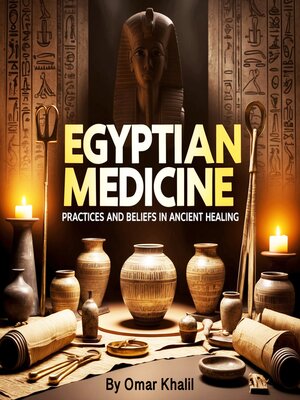
Sign up to save your library
With an OverDrive account, you can save your favorite libraries for at-a-glance information about availability. Find out more about OverDrive accounts.
Find this title in Libby, the library reading app by OverDrive.



Search for a digital library with this title
Title found at these libraries:
| Library Name | Distance |
|---|---|
| Loading... |
The origins of Egyptian medicine trace back to the earliest periods of ancient Egypt, where the intertwining of practical knowledge and spiritual beliefs laid the foundation for one of the most advanced medical systems of the ancient world. As early as the Pre-Dynastic period, evidence of rudimentary medical practices reveals that Egyptians were already exploring ways to treat injuries and ailments using natural resources available in their environment.
Religion played a fundamental role in shaping the practice of medicine in ancient Egypt. The Egyptians believed that the gods held power over health and illness, with many deities associated with specific aspects of healing. For instance, Sekhmet, the lioness goddess, was both a bringer of plague and a healer, while Thoth, the god of wisdom, was revered as a patron of physicians. Temples dedicated to these deities often served as centers for both worship and healing, where priests acted as both spiritual leaders and medical practitioners.
Early medical practices were closely linked to mythology, with illnesses often attributed to divine displeasure or the influence of malevolent spirits. Healing rituals and incantations were designed to restore the balance between the individual and the divine order, highlighting the Egyptian belief in a holistic approach to health. The blending of prayer, magic, and practical remedies reflects a medical philosophy that considered both the physical and spiritual dimensions of wellness.







